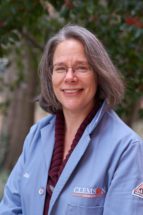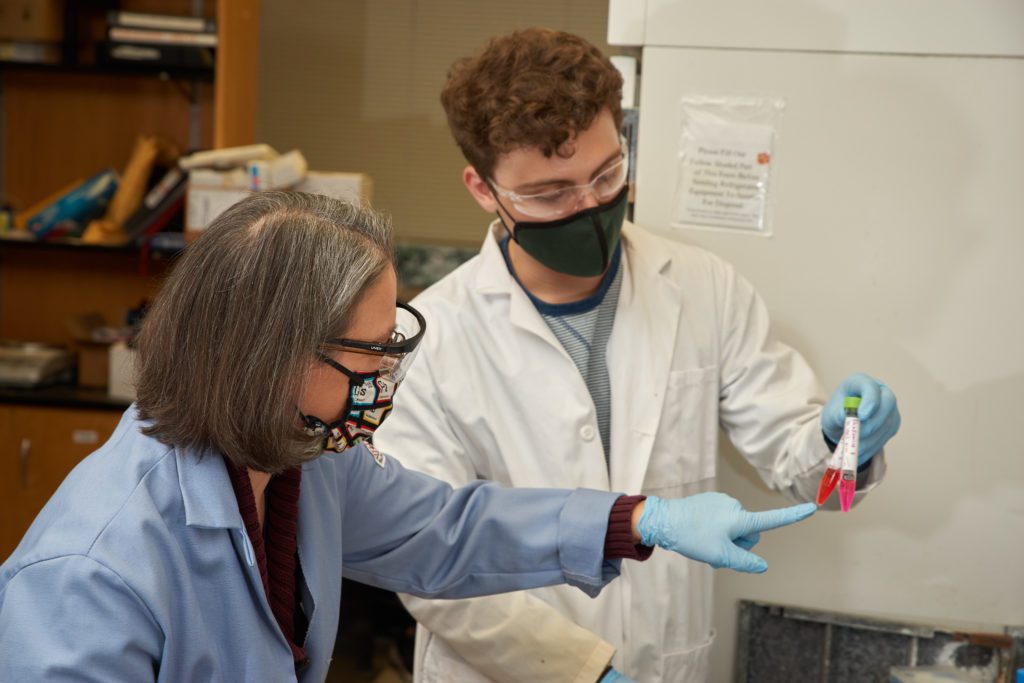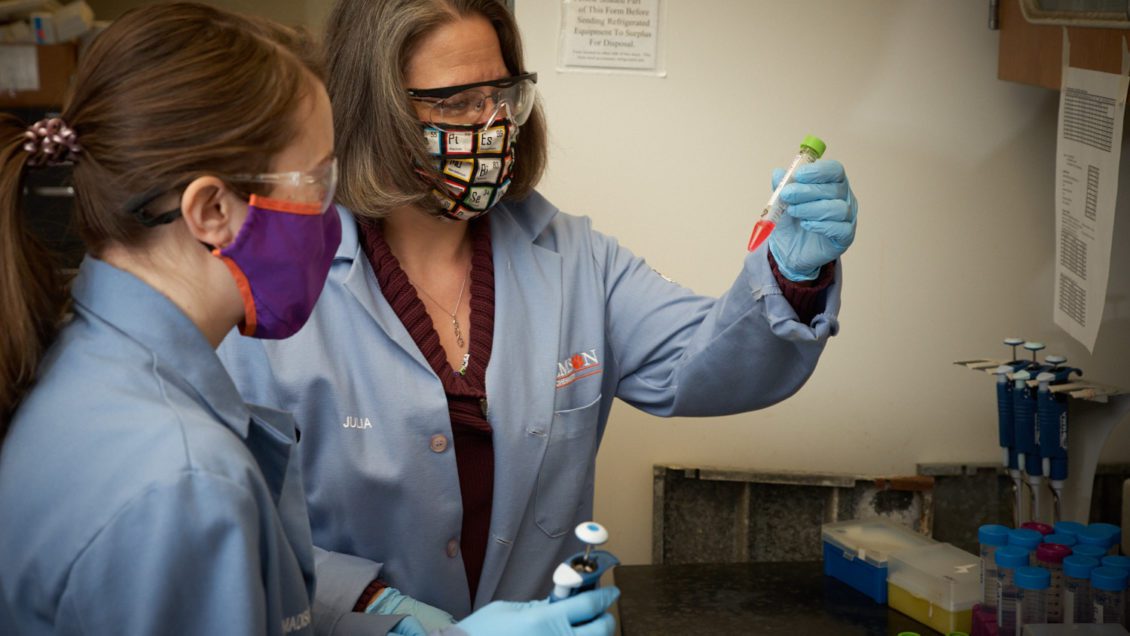Clemson University bioinorganic chemistry professor Julia Brumaghim was named a fellow by the American Chemical Society for her extensive contributions to the scientific community.
The ACS, one of the world’s largest scientific societies with over 150,000 members, selects fellows based on their outstanding scientific achievements and exemplary service to the society.
Brumaghim, a member of the Department of Chemistry faculty since 2003, is one of 45 awardees this year.
The society is honoring Brumaghim for her study of DNA and oxidative stress on cells and her work to promote diversity, equity and inclusion in STEM. It also celebrated her accomplishments while serving in significant leadership roles in the ACS’s Western Carolinas Section, as a speaker for the ACS Tour and as part of the organization’s Women Chemists Committee.
“We are so proud that Julia has received this well-deserved recognition. Julia is an ideal colleague and fantastic role model for other faculty, as she is an excellent teacher, a tireless advocate for our department and profession, and a world-class scientist.”
Bill Pennington, chair of the Clemson University department of chemistry
Brumaghim’s research focuses on DNA and oxidative stress on cells — which is an underlying cause of many diseases of aging, including neurodegenerative diseases such as Alzheimer’s and Parkinson’s, cardiovascular disease and cancer — and how antioxidants can prevent metal-mediated oxidative damage.
Most people have heard of antioxidants, whether in a television commercial touting their benefits in preventing disease or on the packaging of food products and cosmetics on grocery store shelves. But understanding the mechanisms by which oxidative damage leads to diseases like cancer and Alzheimer’s and how the antioxidants might prevent that damage is far from simple.
“Professor Brumaghim’s cutting-edge research investigates DNA damage caused by metal ions, nanoparticles and ionizing radiation and the mechanisms by which endogenous and dietary antioxidants prevent this damage,” said Reza Ghiladi, professor and director of graduate programs in North Carolina State University’s Department of Chemistry. Ghiladi nominated Brumaghim for the ACS honor.
“Her group utilizes coordination chemistry, DNA biochemistry and mammalian cell studies to develop antioxidant structure-activity relationships and to understand nanotoxicity,” he continued. “The Brumaghim group was the first to establish metal binding as a primary and general mechanism for antioxidant activity and to develop predictive models for oxidative DNA damage prevention by several classes of antioxidants, goals that have eluded the field for 50 years.”
Pushing for diversity
In addition to her scientific advances, Brumaghim champions diversity, equity and inclusion in STEM fields. She spearheaded the opening of an on-campus child development center and helped develop the College of Science’s first diversity plan.

Brumaghim took part in Trailblazers: Provost’s Mentoring Initiative for Faculty, a year-long program that provides mentoring and leadership training focused on the unique challenges of women leadership in STEM disciplines. She now serves as an executive mentor and leadership presenter. She also has developed and presented symposia for the Women Chemists Committee on topics such as dealing with gender bias and the professional effects of a global pandemic.
Brumaghim has served as treasurer for the ACS Western Carolinas Section, helped develop a long-range plan and provided financial leadership for a successful southeastern regional ACS meeting.
During her career at Clemson, Brumaghim has mentored 47 undergraduates, four Master of Science students, 18 Ph.D. students and two postdoctoral researchers. Approximately 40 percent of her undergraduate researchers went to graduate school in chemistry or related fields, 30 percent went to medical or pharmacy school and 30 percent went to work in industry or other chemistry-related positions. All her master’s and Ph.D. graduates have gone on to chemistry-related positions in academia, industry or government labs.
She has been the principal investigator or co-investigator on 15 completed and five current grants totaling more than $2.2 million. She has published 61 scientific articles, written two book chapters and edited an ACS Symposium Series book. Brumaghim and her students have delivered 163 scientific presentations at regional, national and international scientific events.
Award winner
While at Clemson, Brumaghim has received several honors, including a Clemson Research, Scholarship and Artistic Achievement Award for authoring a publication with over 1,000 citations. She won the Rising Star Award from the ACS’ Women Chemists Committee, which recognizes exceptional early to mid-career women chemists, and a CAREER Award from the National Science Foundation.
“Dr. Brumaghim is a top scientist who has contributed tirelessly to the American Chemical Society through her research and work as an officer in the local Western Carolinas section. Her selection as an ACS Fellow is a testament to her hard work and dedication. We are certainly proud at Clemson to have her on our faculty, and we are happy for her for being honored by her colleagues in the ACS,” said Steve Creager, professor of chemistry and associate dean in the College of Science.
The ACS will honor the 2022 fellows at its national meeting this week.
“When I started as an assistant professor at Clemson, I had no backup plan. This was the only job I wanted to do. To be recognized 20 years later by the ACS for contributions to science and to the profession is a wonderful achievement and highlights the positive impact one person can make,” Brumaghim said.

The College of Science pursues excellence in scientific discovery, learning, and engagement that is both locally relevant and globally impactful. The life, physical, and mathematical sciences converge to tackle some of tomorrow’s scientific challenges, and our faculty are preparing the next generation of leading scientists. The College of Science offers high-impact transformational experiences such as research, internships, and study abroad to help prepare our graduates for top industries, graduate programs, and health professions. clemson.edu/science
Get in touch and we will connect you with the author or another expert.
Or email us at news@clemson.edu

